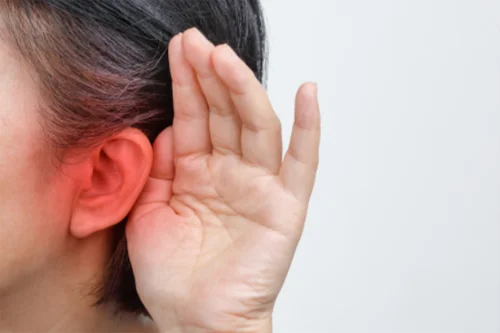Deafness
Deafness

Deafness means partial or complete loss of hearing in one or both ears. This loss can be mild, moderate, severe, or total. It may happen suddenly — for example, after an injury or infection — or develop slowly over months or years without the person even realizing it at first. Hearing loss can affect anyone — newborn babies, children, adults, and elderly people. In fact, it’s one of the most common conditions people experience as they age.
eople with deafness may find it hard to follow conversations, feel left out in social situations, or struggle at work or school. In children, it can delay speech and learning. That’s why early detection and proper treatment are so important to help people stay connected and confident in their lives.
Common Causes Of Deafness
- Age-related hearing loss (Presbycusis) : Gradual loss of hearing as people get older.
- Repeated ear infections : Can damage the ear drum or small bones in the ear.
- Noise exposure : Loud sounds (music, machinery, blasts) can damage the hearing nerve.
- Ear wax blockage : A common, simple cause of temporary hearing loss.
- Ear drum perforation : A hole in the ear drum can reduce hearing.
- Otosclerosis : Abnormal bone growth in the middle ear.
- Certain medicines : Some antibiotics or drugs (ototoxic medicines) can harm hearing.
What Symptoms Might You Notice?
- Difficulty hearing conversations, especially in noisy places
- Needing to increase the volume on TV or phone
- Asking people to repeat themselves often
- A feeling of blockage or fullness in the ear
- Ringing sound in the ear (tinnitus)
- In children: delayed speech or not responding to sounds
Treatment Depends On The Cause
- Ear wax removal : If wax is blocking the ear, cleaning helps restore hearing.
- Medicines or surgery : To treat infections or repair a damaged ear drum.
- Hearing aids : For age-related or nerve-related hearing loss..
- Cochlear implants : For people with severe hearing loss who don’t benefit from hearing aids.
- Avoid loud noise : To protect the remaining hearing.
People with hearing loss may feel frustrated or embarrassed because they can’t follow conversations easily, especially in noisy places. This can lead to social withdrawal, loneliness, or loss of confidence. In children, hearing loss can affect speech development, learning, and relationships with others. That’s why early testing, treatment, and support are key to improving quality of life and avoiding long-term problems.
